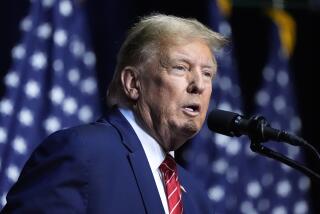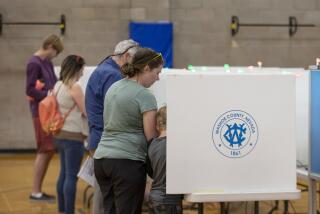Surge isn’t the word for this contest
- Share via
So much for the momentum theory.
Those running political campaigns (as well as those covering them) often make the same mistake as some generals: assuming that what worked in the last war will apply to the current one. For the 2008 presidential race, that caused much attention to be focused on the prospect of an early surge by one candidate or another.
In 2004, after all, Democrat John F. Kerry caught a wave coming out of the Iowa caucuses and rode it almost effortlessly to his party’s nomination. This year, however, the wave effect has been a washout.
Just ask the two Iowa winners, Democrat Barack Obama and Republican Mike Huckabee.
And there’s little sign that Republican Mitt Romney’s much-needed win this week in Michigan will mean much in South Carolina’s GOP primary Saturday. Romney upped his advertising in the Palmetto State.
But in a signal that he doesn’t have much hope of a victory there, he left Thursday for Nevada, where organizational strength -- not momentum -- may propel him to a win in Saturday’s caucuses.
The surge-less campaign has given hope to Republican Rudolph W. Giuliani. His presidential bid, once riding high in national polls, devolved into a plan to make a splash in one state: Florida. With no GOP front-runner -- and none likely before the Sunshine State’s Jan. 29 primary -- Giuliani’s strategy remains viable.
But perhaps he miscalculated with Step Two of his blueprint: the assumption that a Florida win will boost him to a strong showing in many, if not most, of the more than 20 states with primaries or caucuses on Feb. 5. If there’s been no springboard for others from single-state victories, why for him?
-- Don Frederick
--
Frederick is one of the writers of The Times’ political blog, Top of the Ticket, at www.latimes.com/ topoftheticket.
More to Read
Get the L.A. Times Politics newsletter
Deeply reported insights into legislation, politics and policy from Sacramento, Washington and beyond. In your inbox twice per week.
You may occasionally receive promotional content from the Los Angeles Times.










